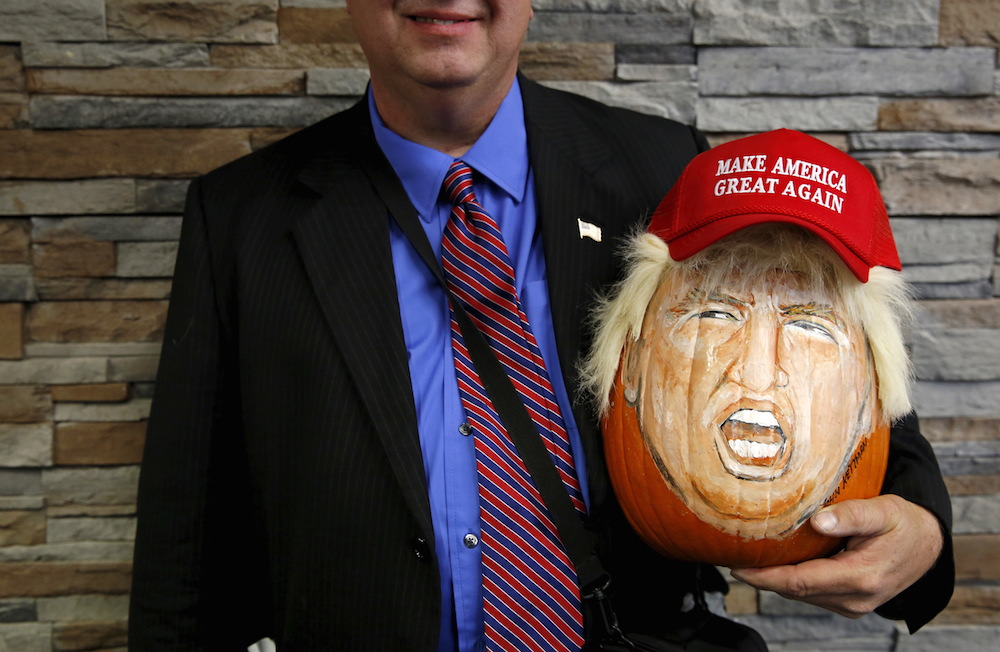The second factor reflecting a change in US foreign policy towards South Africa is that, for more than 12 months, the US did not appoint an ambassador to South Africa. (Getty)
The eight top Republicans jostling for position in the race for their party’s presidential nomination engaged in the most substantive but also the most volatile and feisty debate of the 2016 cycle on Tuesday night as the race for the White House entered a new and more demanding phase.
Two hours of debate in the Milwaukee Theatre in Wisconsin saw the country’s leading right-wing presidential hopefuls hurl themselves into detailed and heated disputes over the fundamentals of modern conservatism.
Donald Trump clashed with Jeb Bush over immigration, Rand Paul took on Marco Rubio over government spending and Ben Carson was deeply tested about his knowledge of foreign affairs and the veracity of his own personal story.
The media hosts of the fourth Republican presidential debate, Fox Business and the Wall Street Journal, promised that it would be the most substantive on the issues that Americans cared about. And it certainly delivered.
The populist grandstanding of the so-called “outsider” candidates – notably Trump and Carson – came under more detailed scrutiny than in any previous debate. Trump in particular was challenged about his headline-grabbing promise to round up and eject the country’s 11-million undocumented immigrants.
Jeb Bush, the former Florida governor and brother of former president George W Bush, whose campaign has been seriously flagging in recent weeks as he struggled to find his voice, came out guns blazing in a derisive take-down of the Trump position: “Twelve million illegal immigrants, to send them back, 500 000 a month, is just not possible. And it’s not embracing American values. And it would tear communities apart. And it would send a signal that we’re not the kind of country that I know America is.”
Bush pressed on. He said that even having a conversation about the forced deportation of millions of law-abiding people “sends a powerful signal. They’re doing high-fives in the [Hillary] Clinton campaign right now when they hear this, that’s the problem with this.”

Head case: US Republican presidential candidate Donald Trump was attacked for his crude plans on immigration. (Jim Young/Reuters)
Ohio governor John Kasich also attacked Trump on his crude immigration plan, insisting: “Come on folks, we all know you can’t pick them up and ship them across a border. It’s a silly argument. It’s not an adult argument.”
His phrase caught the mood of the night, when more experienced politicians snatched back control of the conversation. Bush was not the only experienced politician on the stage who palpably felt the momentum of the presidential contest move in their direction, away from the hitherto ascendant “outsiders”.
Rand Paul, too, came into his own to an extent not previously seen in any of the three earlier debates. In one of the most substantive discussions of the night, the Kentucky Republican took on Marco Rubio over their respective interpretations of conservatism as it applied to government spending on domestic welfare and the military.
When Rubio talked about introducing a new family-friendly tax system, Paul pounced, denouncing the plan as a new trillion-dollar expense on the federal budget. “He’s talking about giving people money they didn’t pay. It’s a welfare transfer payment,” Paul said, adding that it didn’t look very conservative to him. He then went on to lambast Rubio’s plan to increase spending on the US military by a similar trillion dollars.
“How is it conservative to add a trillion dollars in military expenditures? You cannot be a conservative if you’re going to keep promoting new programmes you’re not going to pay for,” he said.
Rubio lashed back by branding Paul a “committed isolationist”. “I believe the world is a stronger and a better place, and the United States is the strongest military power in the world,” he said. “There are radical jihadists beheading people and crucifying Christians.”
It was a difficult night for Carson, who was exposed to one of the only noneconomic questions of the evening when he was asked whether recent press coverage of inaccuracies in his personal story had damaged his standing. Carson, a retired neurosurgeon, has faced a recent flurry of news stories suggesting that he juiced up his personal biography.
He has been shown to have exaggerated or misrepresented his own accounts that he turned down a scholarship to West Point military academy, tried to stab a friend at school and was rewarded by his professors for being the most honest student in his class at Yale.
He tried to deflect the question by turning it back on the media. Carson said the assault on his trustworthiness by the media was unfair compared with the treatment of Hillary Clinton’s narrative over Benghazi. “We should vet all candidates. I have no problem being vetted but I do have a problem with being lied about and putting that out there as truth. We have to start treating people the same.”
The more detailed the level of discussion, the more edged out of the limelight both Carson and Trump appeared. When historians look back on the 2016 presidential race, they may come to see Milwaukee as a tipping point in which the more establishment politicians within the crowded field of contestants finally came into their own.
In the post-debate spin room Trump praised the debate as “an elegant evening” compared with the controversial CNBC debate just two weeks before. Other presidential campaigns took turns declaring victory. Doug Stafford, the top strategist for Paul, said: “I thought Rand really stood out from everyone in this debate and showed himself to be the real, true fiscal conservative on every issue.”
Michael Steel, a top aide to Bush, said: “I think [he] showed again why he’s the best choice to be the next commander in chief and did the best job, making a contrast with Hillary Clinton on question after question.” – © Guardian News & Media 2015